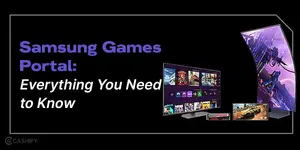The term eSIM became quite popular with the launch of iPhone Xs and since then the trend of introducing an eSIM to house the secondary SIM has become quite popular. So let us begin with what an eSIM is, followed by why it exists and how to purchase and use the same.
Also read: Smartphone reviews
What is an eSIM?
An E-sim or better known as an embedded SIM is a form of programmable SIM card that is embedded directly into a device. With a smartphone that features an eSIM, there is no requirement for a physical SIM card provided your network carrier supports eSIM.
An eSIM is embedded onto the board and it can be enabled or disabled by the network carrier remotely without the need to swap the SIM cards. Also, it is rewritable so it is quite easy to switch carriers without physically swapping SIM cards. An eSIM eradicates the need for a SIM cradle and a sim card slot in our mobile devices. Basically, an eSIM can be quite helpful in achieving the portless future that everyone dreams of.
However, like everything in this world, eSIMs too have their own sets of pros and cons, which we will be listing out later in this article, for now, let us initially discuss how to get or use an eSIM.
Also Read: 9 Things To Do With Your New Android Phone
How to Use an eSIM
To use an eSIM, one needs to follow the steps given below:
- Firstly, check as to whether your network provider has support for eSIM and, if they do, move on to the next steps.
- Go to your smartphone settings and select the Mobile (cellular option in iOS).
- At the bottom of the tab, check the add cellular plan or enter manually.
- Tap enter details manually.
- Enter the information regarding the eSIM, which will be provided by your ISP.
Note: In case you are in a foreign country and use locked smartphones from a particular network providers like Verizon or AT&T, contact them for more information.
Also Read: 5 Hidden Features For Your iPhone You Never Knew
Pros of having an eSIM
1. Remote Network Switch:
One of the best features of using an eSIM is the ability to remotely change your operator. For context, if you have shifted from one mobile operator to another, you might be familiar with the hassle of going to a shop, purchasing a SIM, waiting for it to be activated, and basically taking a long time.
This process becomes much simpler when one owns an eSIM supported smartphone since the hassle of going out is eliminated. One simply needs to ask the operator for the eSIM details and enter them into the manual selection. This is much more efficient than going to a shop (in the middle of a global pandemic).
Also read: Best mobile phones under 15000
2. Eliminate the Risk of Damaged SIM cards
Another one of the major pros is the reduction in the probability of scratching of Sims or of their destruction. This is quite a major concern that we ourselves have faced.
If a SIM Card gets even slightly scratched, it stops working, which is a major concern, considering if you use a single sim, your mode of contact, purchasing ability (if you rely on OTP based transactions) are downright cut off, which could be a big problem for the typical user. With an eSIM that issue will not be something that you ought to worry about.
Also Read: 5 Reasons To Sell Your Old iPhone SE
3. Multiple Profile Support:
In case you travel a lot, this feature might just be the best feature of an eSIM. Basically, sometimes people use multiple profiles with their sims and for that, the usability in terms of the regular sim is less. Meanwhile, in terms of an eSIM, one can use multiple profiles with them. For example, iPhones have support for more than 10 profiles in the case of eSIMs, which is a lot.
As mentioned above, every feature has a set of pros and cons and, this one has more pros and cons, let us get to the same without wasting a lot of time.
4. Cool Factor:
While this is technically not a pro, why not include this, since eSIMs are new tech which are somewhat cutting edge when compared to regular sims. If you are a tech nerd and someone who wishes to keep up with the latest times, you might want to check out this trend of using an eSIM.
Also Read: Top New iOS Features “Inspired” By Android
Cons of having an eSIM
As we had stated in the initial paragraphs, even an amazing feature will have one or more cons and this is not different. So, let us discuss the cons in regards to eSIMs.
1. Minimal support in devices:
With every piece of new tech, we see a small amount of support and that is the same with E-sims. Very few devices can use the eSIM functionality and a majority of them do not support the same. So, it is advisable to check whether your phone supports eSIM before getting excited about this feature.
Also Read: How To Play YouTube Videos In Background On Android & iOS?
2. Not very cheap:
Another con that comes with each piece of new tech, the initial stage of the same is met with price hikes due to fewer sales or more importantly a limited user base. The fact of the matter is, while eSIMs have some pros, the pricing set by the operators for eSIM is much higher in comparison to regular physical sims. If you do not have budget issues this might not affect you, but seeing as how it is a con, it deserved a mention.
Also Read: Top 5 Most secure Phones In The World That Can’t Be Hacked!
3. OS compatibility issue:
Most Operating systems are not constantly upgraded and considering how E-sims is still a small part of the market and have not become saturated, the software OS present on devices is not the smoothest in functioning with them.
Sometimes you will face sudden problems and even devices like iPhones forget names set for E-sims, which is quite odd. Also, do note, you cannot switch an eSIM from a device to another, so that is a no go for someone who changes smartphones quite frequently.
Also Read: Cashify Roundup: All Smartphones Launched In October 2020
What devices support eSIM?
With eSIM slowly becoming mainstream in flagship devices, there are a lot of devices now that support eSIM functionality. Here are a few devices that support eSIM functionality:
- iPhone 12, iPhone 12 Pro, iPhone 12 Pro Max, 12 Mini, iPhone SE 2, iPhone 11, iPhone 11 Pro, iPhone 11 Pro Max, iPhone iPhone XS, iPhone XS Max, iPhone XR
- iPad Air (3rd Generation), iPad Pro (3rd Generation), iPad Mini (5th Generation)
- Google Pixel 3, 3XL, Google Pixel 4, Google Pixel 4a
Which Network Providers Support eSIM in India?
All three major telecom operators i.e Reliance Jio, Vodafone, and Airtel support the eSIM functionality in India. If you are an existing customer of any of these network providers you can contact customer care for further details on how to enable eSIM for your network provider. Usually, an SMS needs to be sent on a particular number and the eSIM is activated in a couple of hours.
To conclude, eSIMs are good and feature more pros than cons, but, with most new features in tech, they are still not popular and common, meaning the support for the same is still lackluster and we would recommend waiting for this feature to become more common before making the switch from a regular sim to an eSIM.
We hope this article has been helpful in clearing your doubts regarding eSIMs and you are now familiar with all the pros and cons of using an eSIM and can now make the decision on whether to buy an eSIM.
For the latest smartphone news, stay tuned to Cashify. We also allow you to compare mobile phones so you can find out the better phone before buying.
















